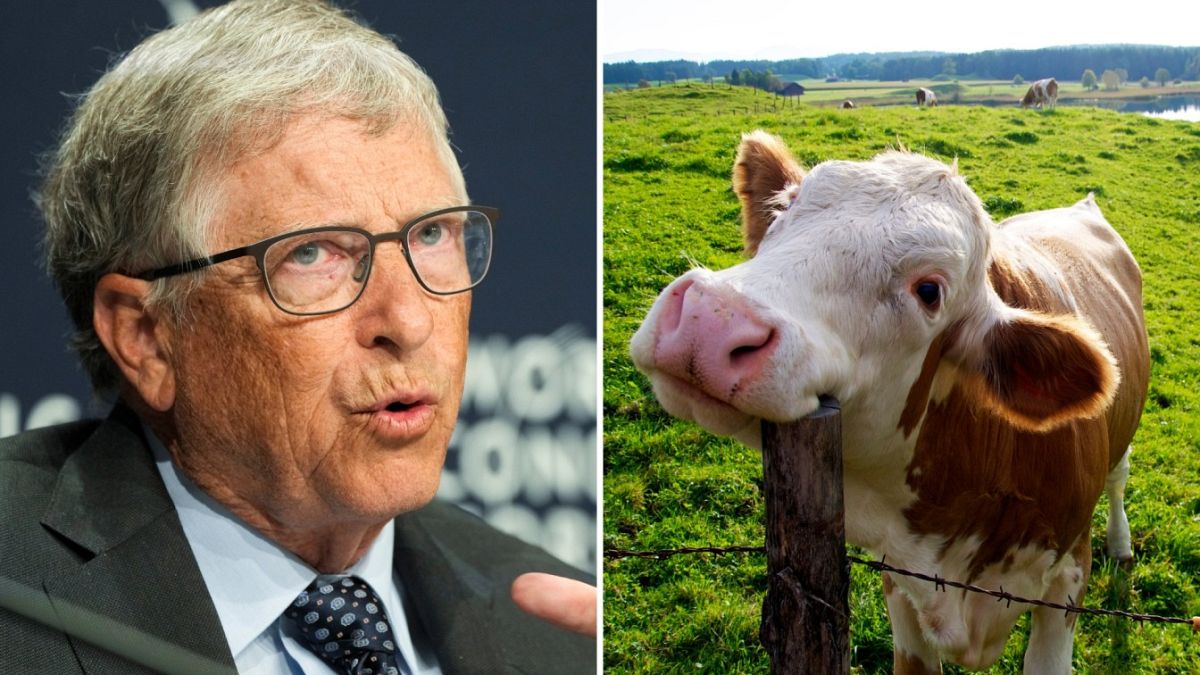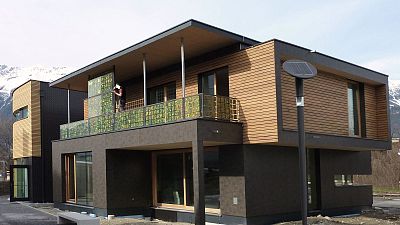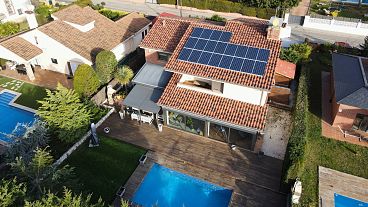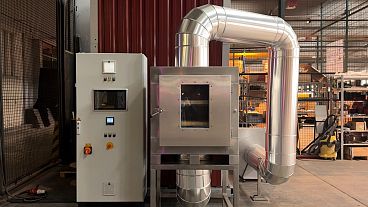Methane gas is one of the biggest drivers of global warming. This startup hopes to combat it using seaweed.
Bill Gates is funding a start-up that hopes to combat methane-emitting cow burps.
Methane gas is one of the biggest drivers of global warming.
And agriculture is the main culprit for human-caused methane emissions, roughly 32 per cent of which come from livestock manure, belches and farts.
Slashing methane emissions is therefore a key part of the fight against climate change - and luckily this is not out of reach.
Australian climate technology start-up Rumin8 wants to tackle this issue by feeding cows seaweed.
So far, they have secured a total of AUD $25 million (€16m) in seed funding - the latest round of which was led by the Microsoft founder’s Breakthrough Energy Ventures (BEV).
How does seaweed feed reduce cow burps?
Seaweed has been shown to naturally suppress methane production in cows and other livestock.
As cows digest their food, carbon dioxide and hydrogen are released. A natural enzyme then combines the two gases, creating methane in the process.
Food supplemented with seaweed suppresses this enzyme and methane emissions are reduced as a result.
Rumin8 is not the first company to capitalise on this. Swedish startup Volta Greentech and Irish SeaSolutions have also developed natural seaweed-based feed supplements for pasture-based livestock.
When fed to cows at a daily dose of just 100 grams, Volta Greentech found that red seaweed reduced their enteric methane (gas fermented in the intestines of cows, sheep and goats) emissions by up to 80 per cent.
Perth-based Rumin8 says its methane-busting livestock feed additives offer a low cost and scalable solution to the methane problem.
“Our laboratory results continue to yield excellent results, our animal trials are reflecting the laboratory results, and the financial modelling we are undertaking is indicating we will be able to supply our products at a commercial price point,” says the startup’s managing director David Messina.
Why are methane emissions dangerous?
Accounting for about 20 per cent of global emissions, methane is the second most abundant greenhouse gas after CO2.
Methane emissions are a key driver of global warming. Though CO2 tends to steal the spotlight, methane is more than 25 times as potent as carbon dioxide at trapping heat in the atmosphere, according to the US Environmental Protection Agency.
Human-driven methane emissions are responsible for nearly 45 per cent of current net warming, the IPCC’s (Intergovernmental Panel on Climate Change) 2022 assessment shows. And the problem is growing: in 2021, the volume of methane in the atmosphere saw its largest annual increase ever recorded.
How much did Bill Gates invest in the seaweed feed startup?
Billionaire Bill Gates helped raise AUD $12 million (€8m) in seed funding for Rumin8 through Breakthrough Energy Ventures (BEV). The investment firm is also backed by Amazon’s Jeff Bezos and Alibaba co-founder Jack Ma.
Rumin8 says the funding will help speed up the road to commercialisation. It will partially be used to carry out commercial trials in Australia, New Zealand, Brazil and the USA.
“We have been very pleased with the reception we have received from climate impact funds around the world,” says Messina. “There is a genuine desire to fund solutions to enteric methane emissions from livestock and fortunately for Rumin8, they can see the benefits of our technology.”
Together with an initial round of funding, Rumin8 has now raised AUD $25 million (€16m) in total.
How are methane emissions being tackled on a wider scale?
At COP27 in November, 150 nations committed to reducing methane emissions by 30 per cent by the end of this decade.
“Methane is the cheapest and fastest way to slow down global warming in the years ahead,” said European Commission Vice-President Frans Timmermans at the climate summit.
By taking simple proven actions in the agriculture, energy and waste sectors, he predicted we will avoid 0.2C global warming between 2014 and 2070, with every decimal set to be crucial.
To help countries meet this goal, the EU is investing millions of euros to support methane reduction and introducing regulations on methane in the energy and agricultural sectors.
The EU’s new Common Agricultural Policy coming into force this year includes funding for improved livestock and manure management - a key sector when it comes to methane.
Satellites that detect methane leaks were also recently developed by the UN to help nations cut their emissions.
Last year, New Zealand proposed imposing a tax on agricultural emissions produced by farm animals as part of the country’s plan to become carbon neutral by 2050.



